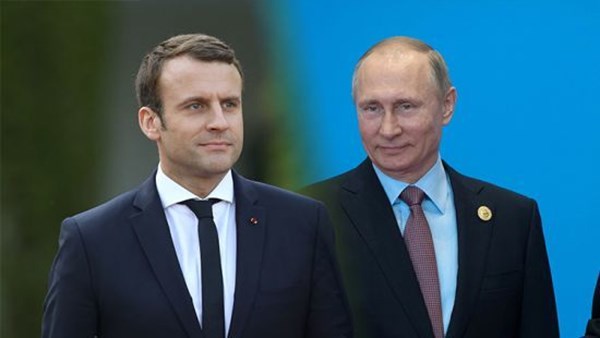Macron and Putin discuss Iran nuclear program
French President Emmanuel Macron and Russian President Vladimir Putin discussed Iran’s nuclear program during a recently-held telephone conversation, as reported by the French President’s Press Office reported on this development.
“The Presidents expressed their common desire to preserve the achievement of the 2015 agreement on Iran's nuclear energy,” said the statement.
Macron also stressed that discussions regarding control of Iranian nuclear activity after 2025, Iran’s missile program, and the situation in Syria and Yemen should be open and held in close cooperation with Russia, other members of the UN Security Council, and European and regional powers.
Putin and Macron agreed during the discussion to activate contact between their respective commands, particularly with regard to “achieving concrete progress toward [resolving] the Syrian Crisis”, in preparation for the French President’s visit to Russia from 24-25 May.
On Monday, April 30, Israeli Prime Minister Benjamin Netanyahu claimed that Tehran is secretly continuing to work on nuclear weapons and hiding evidence from the global community. In support of this, he presented part of the secret "nuclear archive" of Iran - documents obtained by Israeli intelligence.
Tehran has denied the accusations. According to a statement by Iranian Deputy Foreign Minister Abbas Araghchi, the Israeli accusations are "childish and ridiculous". "Netanyahu’s show was a
childish and ridiculous game ... The planned show ahead of May 12 deadline is to affect Trump’s decision on Iran’s nuclear deal," Reuters quotes Araghchi as saying.
US President Donald Trump promised to decide by May 12 whether the United States will stay or leave the "nuclear deal" with Iran. The agreement was concluded in 2015 between the United States,
Russia, Britain, France, Germany and China on the one hand, and Iran on the other. The deal implies a gradual lifting of sanctions on Tehran in exchange for the latter’s abandonment of its
nuclear program. Iran also had to admit International Atomic Energy Agency (IAEA) inspectors to its nuclear facilities.
